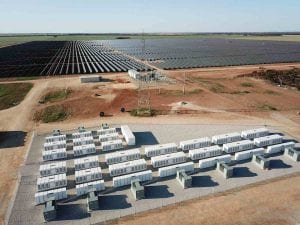NexusMedia
What began as a way of trolling Prius drivers became a signature protest against America’s first black president — rolling coal.
Drivers spend hundreds or thousands of dollars retrofitting their trucks so they can blanket cyclists, motorists and pedestrians with thick, black clouds of exhaust.
“I run into a lot of people that really don’t like Obama at all,” one seller of coal-rolling equipment told Slate. “If he’s into the environment, if he’s into this or that, we’re not. I hear a lot of that.”
In some instances, the practice has taken on an explicitly racial tone, as drivers publish videos of themselves rolling coalon Black Lives Matters protestors.
Why would anyone spend so much money to do something so hostile and self-defeating? New research offers some insight.
After Barack Obama took office, white Americans were less likely to see climate change as a serious problem, according to a recent paper published in the journal Environmental Politics.
The study further finds evidence of a link between racial resentment and climate change denial. This is not to suggest that all climate deniers are racists, merely that racial resentment may, in part, be driving climate denial.
“There has been increasing polarization on this issue — and this is one thing my own research has been examining for a while — trying to figure out what are some of the root causes of this polarization,” said study author Salil Benegal, a political scientist at DePauw University.
Researchers have thoroughly investigated the link between ideology and attitudes toward climate change, finding that conservatives are significantly more likely to reject climate science, not because they misapprehend the facts, but because they are taking their cues from conservative elites, many of whom have close ties to the fossil fuel industry.
Thus, while scientists have grown more certain about the causes and perils of climate change, attitudes toward the carbon crisis have become more and more polarized.
While Democrats have grown more concerned about climate change, among Republicans, climate denial has become increasingly calcified.

Separately, researchers have studied how racial resentment among white Americans has worsened economic anxiety and driven opposition to welfare, Medicaid and other government initiatives. (As it happens, white Americans are the largest beneficiaries of these programs.)
Writing in the Washington Post, political scientists Adam Enders and Jamil Scott explained that, while racial resentment has remained stable over time, “More and more, white Americans use their racial attitudes to help them decide their positions on political questions such as whom to vote for or what stance to take on important issues including welfare and health care.”
They added, “Barack Obama’s rise to the presidency further strengthened the relationship between racial resentment and political attitudes.”
Benegal’s study links these two fields of research by asking if, and to what extent, racial resentment has fueled climate change denial.
He began by examining the views of black and white Americans on climate change before and during Obama’s presidency, comparing Pew surveys taken between 2006 and 2008 with surveys taken between 2009 and 2014.
Obama, who named climate change a top priority on the campaign trail, tried and failed to pass cap and trade in 2009.
Before the 2008 election, Benegal said, there was no significant difference between white and black Americans on climate change, when controlling for partisanship, ideology, education, church attendance and employment.
In the years after Obama took office, the views of black Americans stayed roughly the same. White Americans, however, were 18 percent less likely to see climate change as a very serious problem.

For the second part of his study, Benegal investigated the relationship between racial resentment and climate denial using data from the 2012 and 2016 American National Election Studies.
First, he created an index of racial resentment based on how much people agreed or disagreed with statements like,
“It’s really a matter of some people not trying hard enough, if blacks would only try harder they could be just as well off as whites,” and,
“Over the past few years, blacks have gotten less than they deserve.”
Then, he looked at how racial prejudice interacted with views about climate change.
“I found that the racial resentment scale was incredibly significant in predicting whether or not people agreed with the scientific consensus,” Benegal said.
Controlling for age, ideology and education, he found that white Republicans who scored high on racial resentment were significantly more likely than those who scored low to say that climate change isn’t happening or that humans aren’t the cause.

“It is not so much that elites would highlight Obama’s race specifically and then bring up climate or other health policies,” Benegal said.
“It’s more that when certain voters associated Obama with an issue, they inherently saw Obama through this racial lens and immediately viewed almost anything he was associated with as some kind of racial issue.”
And Obama did a lot on climate change — setting ambitious fuel standards, creating the Clean Power Plan, joining the Paris Agreement.
None of this is to say that racial resentment is the sole driver of climate denial.
Rather, this study shows that racial resentment could be one of several factors shaping views about climate change.
Benegal suggested future research could investigate how political elites talk about climate change — how they may be tapping into racial resentment to stoke climate denial, just as they have capitalized on resentment against black and, increasingly, Hispanic Americans to court white voters.

While Benegal’s research makes an important contribution to understanding attitudes toward climate change, political scientists Adam Enders and Jamil Scott, who were not affiliated with the study, noted its limitations.
Enders, an assistant professor at the University of Louisville, said that it is difficult to separate racial resentment from partisanship as climate change is highly politicized, and people are more likely to hear about the issue from politicians than from scientists.
Scott, a Phd candidate at Michigan State University, noted how polarized the issue has become. “Climate change is an issue that is ‘owned’ by the Democratic Party.
Thus, Democrat identifiers tend to buy into the message of climate change and Republican identifiers do not,” she said, explaining that:
“a stronger test of the racialization hypothesis would tease out the difference between negative attitudes toward climate change as a partisan concern, which by extension includes Obama as the head of the party, versus negative attitudes toward climate change as a racial concern because of its association with Obama.
“There is subtle, but important difference there.”
Benegal said he intends this study as first step in understanding this relationship, explaining that “we need to examine other elements of partisanship or factors that may amplify or intensify partisan values or behaviors” — including racial resentment.
He added, “I’m hoping this paper acts as a step in that direction to start exploring some of those interactions, specifically those between race and party ID.”
Benegal worries that, as some have suggested, the political parties are sorting according to feelings of about race.
“Maybe we need to look at race or racial resentment much more critically,” he said.
“The concern for me is that if climate change as an issue has become more racialized… it may make it harder to actually persuade individuals to shift their views.”
Source: NexusMedia. Reproduced with permission.










